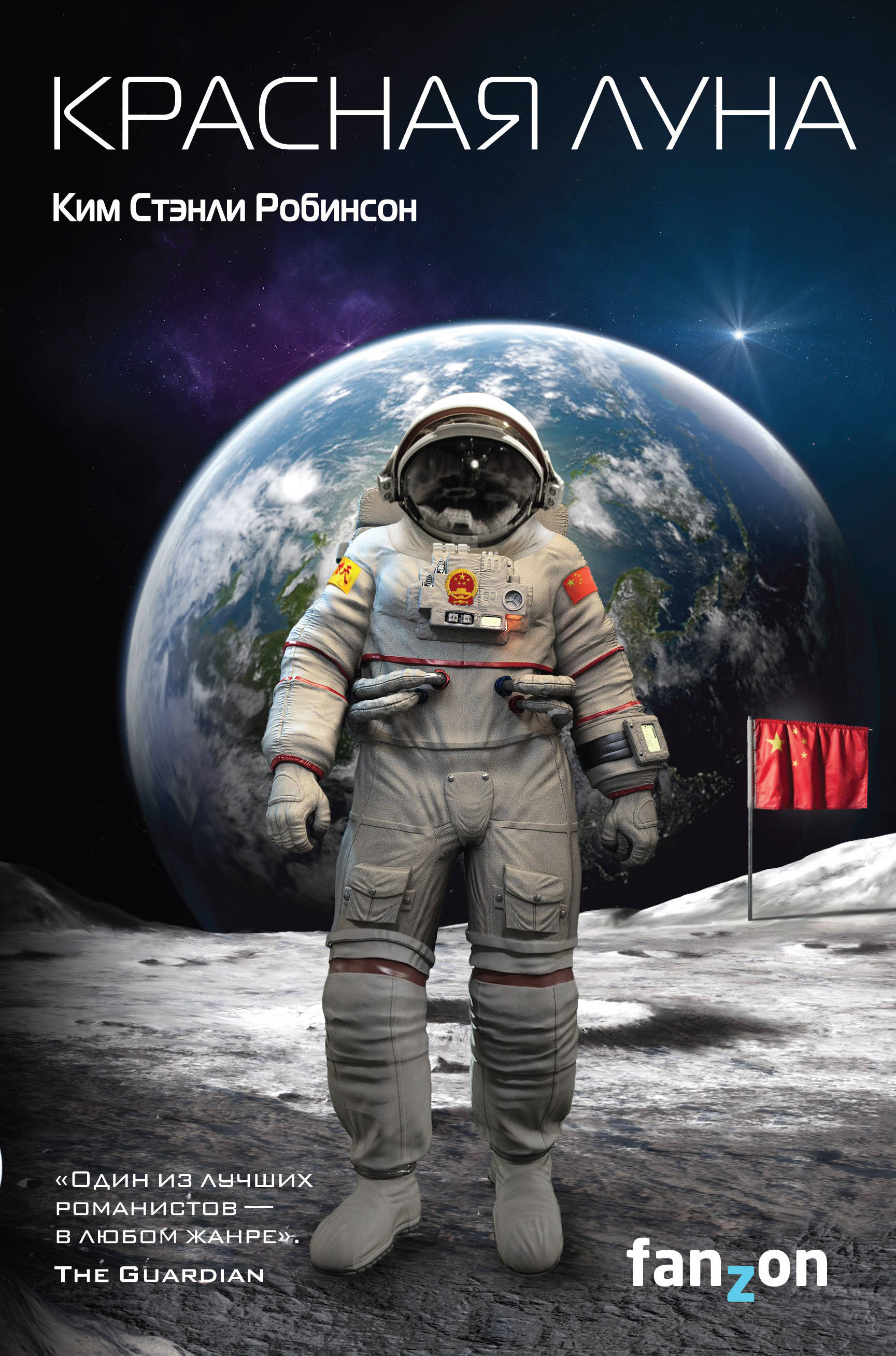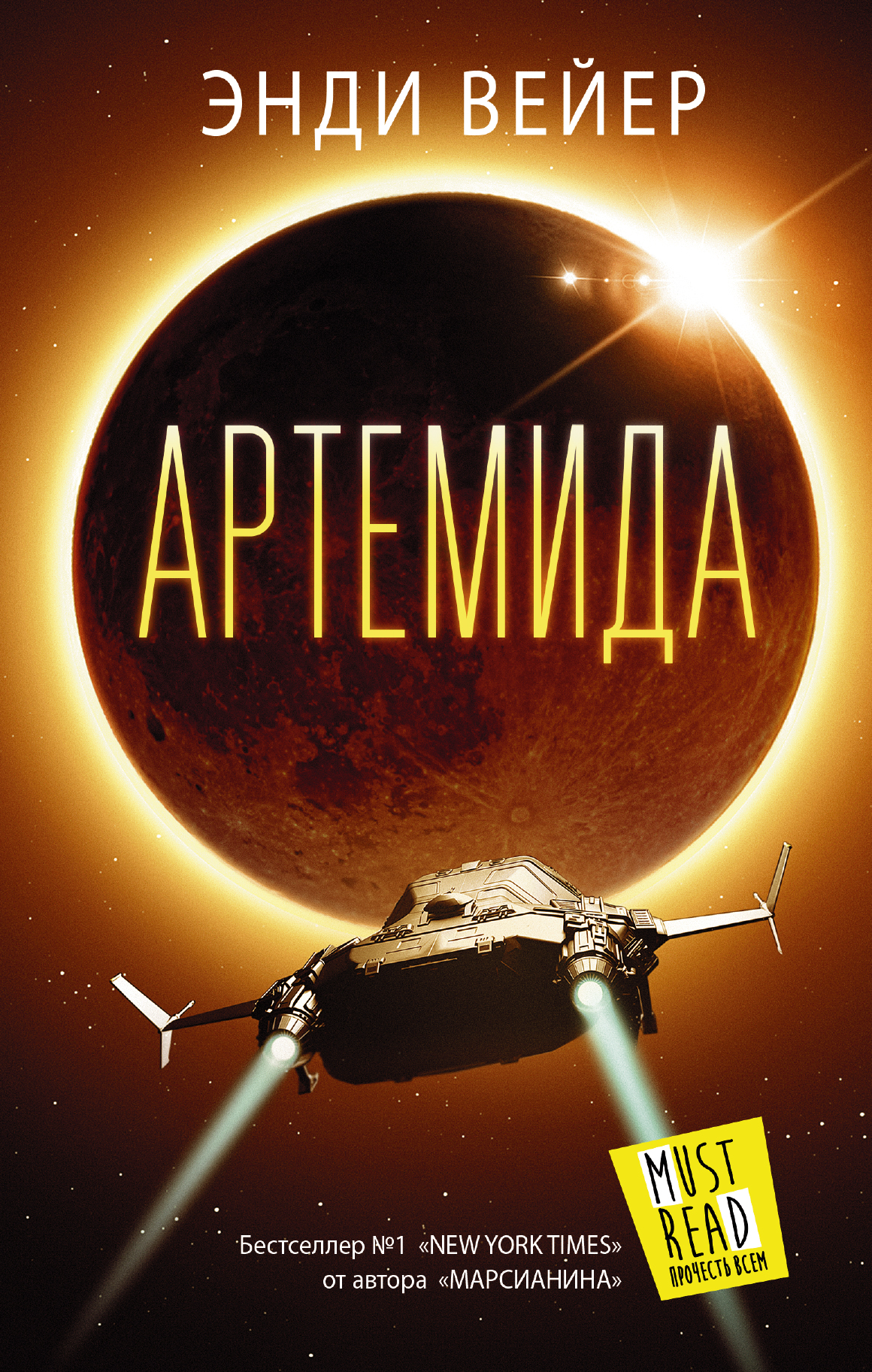
Is there a real Moon Race in the near future? We do not know for sure, but we have every reason to believe that yes. Various states and private space companies are already showing interest in returning to Earth's satellite. Many of them are willing to cooperate, while for cases of overlapping interests are already trying to develop appropriate rules governing the "rules of conduct" on the moon. The plans include the extraction of resources, and the organization of temporary settlements and, of course, scientific research.
We can observe how fiction is gradually embodied in reality. And writers, undoubtedly, feel this, and therefore increasingly turn to the lunar theme. And here are some recent examples of science fiction about the exploration of the moon and the struggle for its resources.
"Moon" Ian MacDonald ("New Moon", "Wolf Moon", "Risen Moon")

In Ian MacDonald's trilogy, the Moon was colonized about half a century before the events of the cycle, and the cities under the domes are already in full swing here. The population of the satellite, of course, is much more modest than the earthly, and the cultures of the settlers have mixed, forming a bizarre new and fragile order. There are no clear laws and constitutions, this society lives on agreements and deals. Here everything is owned by five families who have gnawed power for themselves and are now striving to protect what they have acquired and expand their influence. Each family has its own corporation and its own sphere of power, a specialty without which one cannot survive on the moon. Thus, they are all dependent on each other, intertwined by dynastic marriages and other kinds of unions. But equilibrium cannot last forever.
The Brazilian family of Corta is responsible for helium-3, and this is, to put it mildly, an attractive niche ... His matriarch is not young, and her heirs have not been baptized in the cruel world of intrigue and corporate wars. The power of the corporation is under threat, than the Australian Mackenzie clan is going to take advantage of. And if someone has less power, then someone will have significantly more, and the rest of the players also cannot stand aside. After all, the Moon is used to fighting even for the right to breathe.
The "toy" atmosphere of the campy, but criminal business world in the spirit of the mafia and prehistories about the colonization of the moon are replaced by rivers of blood, numerous betrayals and avengers. MacDonald's trilogy has become one of the main milestones of the "lunar" literature of recent years: the scale of the narrative and the complexity of the plot have become the main trump cards of the cycle.
Political issues here are intertwined with the unique atmosphere of anarchy in a society that is built on completely different principles. And the Earth, of course, will also appear in the equation with its own valuable opinion, which none of the inhabitants of the moon will like.
"Red Moon" Kim Stanley Robinson

The year is 2047. The United States and China are the main adversaries on the world stage. They compete with each other in politics, economics, science and technology, on Earth and on the Moon. And on the moon, China is clearly in the lead. It is this country that will play a decisive role in the plot when Robinson undertakes to compare "earthly" and "lunar". The "red moon" is the moon under the red flag of China. And from there come two of the three main characters: the daughter of the Minister of Finance Chan Qi and the famous journalist Ta Shu. The third character, American Fred Fredericks, brings some variety to the hero gallery.
When the author of the famous Martian Trilogy sets out to write about space colonization, expectations are inevitably high. But "Red Moon" is just a completely different book, no better and no worse than "Red Mars", but simply much closer to the Earth and its problems. This is social science fiction, where Robinson skillfully weaves a large-scale picture and individual fates of heroes, technical details of the future and a plot that begins with murder.
Each of the heroes was brought to the satellite of the Earth by their own goals, but now they are involved in the death of a high-ranking official, and then they are guilty of a certain reorganization of the world order. Robinson loves to lead the future into rather utopian pictures, but at first there are many politics and social games waiting for readers. This novel is more than a story about how they cannot share the moon, it is also a search for weak points in communication between people and a discussion of how you can try to overcome them.
Powder Moon by David Padreira

2072, the moon is producing helium-3, which the Earth needs. It is difficult to call it "colonization", it is just that this resource is very necessary for humanity. Space miners face a difficult job in very difficult conditions, to which people go for a solid pay or out of a sense of duty. Kaden Deckert, a former Marine, is more of the latter. At least he is still as selfless as he was once in the service, so when the first murder takes place on the moon, he is taken seriously.
The energy crisis happened in 2058 when the rise of methane in the ocean triggered the Thermal Maximum. Having survived a series of catastrophes, humanity rallied and found a way out - helium-3. Since then, the first cosmic rule has been: safety for everyone. When it is violated, humanity is on the verge of the First Lunar War. And it is clear that for those on the moon at this particular moment, this will not end with anything good.
Powder Moon is hard science fiction with elements of a detective and thriller. There is a lot of politics here, at the same time depressingly dirty, into which Kaden Deckert is forced to plunge into during the investigation. But even more - the inhospitable, deserted Moon, the life of local workers. The writer creates a psychologically reliable sense of the unity of the people who are at the Sea of Yasnosti-1 station. Although, perhaps, part of this feeling is created by the forces of the protagonist, because he is their commander, moreover, who once already lost a detachment. And he literally crawls out of his skin to protect each of them. And all this against the backdrop of a metaphorical "storm front" of growing danger. After all, for those who stayed on Earth and decide serious issues, sitting in comfortable offices, all the heroes are just cogs, soulless tools for achieving goals.
"Powers of the Earth" Travis Corcoran

The year is 2064. The depression and economic decline has been dragging on for the past half century. A corrupt government deliberately impedes progress, which could theoretically upset the established order of things. The picture would have been extremely bleak if not for the Moon. The underground city of Aristill has been flourishing there for about a dozen years. It was a project of all dissenters, dreamers, revolutionaries. They build their lives on this bare stone (to be more precise, there is an underground city under it). The conditions are difficult, but the freedom is worth it.
But the authorities of the Earth need resources. And a small victorious war. They represent the cradle of civilization, they have weapons produced for centuries and many billions of cannon fodder. They have to deal with the lunar dissidents in no time, if need be, and are ready to do it. This is the plot of Travis Corcoran's eventful, dynamic and satirical socio-political fiction.
There will be a certain topicality, moreover, very unusual. There will be interesting fantastic ideas here. And here there will be live, colorful, different characters, demonstrating all the charms of motley moon refugees. This is the case where the writer perfectly understands that how much you are attached to the characters depends on how much you are ready to worry about what is happening in the novel. And there will be something to worry about. "Powers of the Earth" are often compared to Heinlein and his "Moon is a harsh mistress". And there is almost nothing to add here: it is both a tribute to the classics and a fresh look at the topics raised in it.
"Artemis" Andy Weyer

Perhaps the most "science" fiction of the entire collection, which in general can be considered Andy Weier's calling card after "The Martian." The settlement on the Moon here is a small colony, where only a few thousand people live, but tourism is thriving. Few are ready to live in the unusual conditions of the Earth's satellite - progress has stepped noticeably, but not too far. The living conditions of the colonists are depicted with reliability and attention, they are already quite comfortable, but they are fraught with many disadvantages and dangers. But going on vacation is the perfect solution.
The first lunar city is actually called "Artemis". It is heavily dependent on Earth, being a slightly distant but not autonomous frontier. For example, the main character of the book, a young girl Jazz, is engaged in petty smuggling. She does not associate with dangerous goods - and no one needs dangerous goods in small modest Artemis - but a small "forbidden" allows you to stay afloat. But Jazz dreams of his other life, and this pushes her to participate in a dangerous business. Which, of course, is not going according to plan.
Weier combines a certain level of social utopia - the absolute political correctness of society and the deep consciousness of the citizens of Artemis - with a pinch of dirty politics, resulting in an interesting picture of the future. His political assumptions are sometimes no less interesting than scientific ones. Science, by the way, as in the first book of the writer, will often help the heroes to escape in difficult situations. And the plot this time turned out to be more dynamic and adventurous.